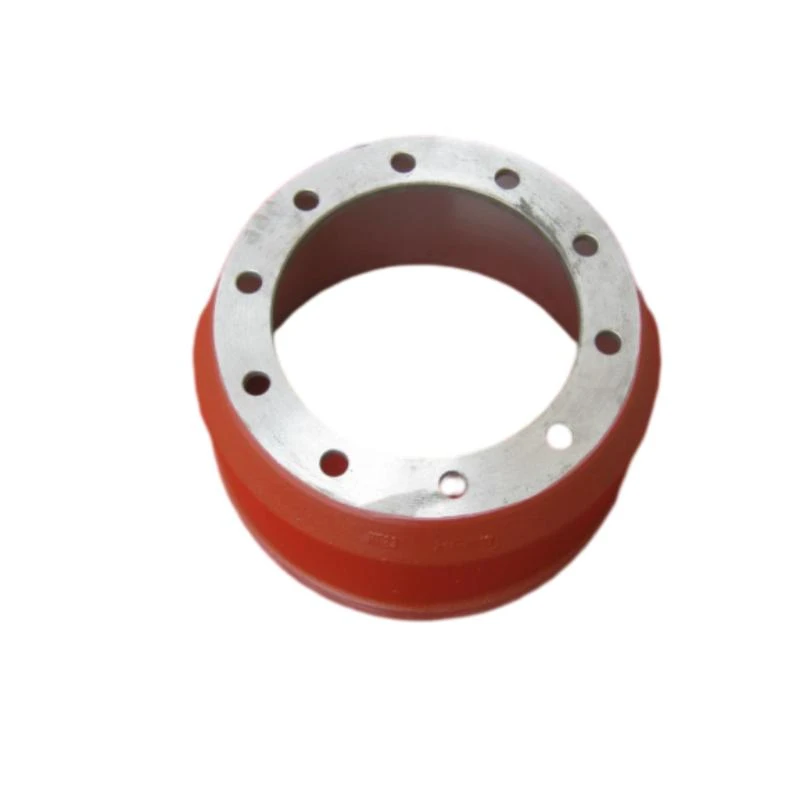Nov . 26, 2024 07:22 Back to list
Reasons Behind Rust Formation on Brake Drums and Its Prevention Methods
Why Do Brake Drums Rust?
Brake drums are a crucial component of a vehicle's braking system, particularly in older models and heavy-duty vehicles. They help convert kinetic energy into heat energy through friction as the brake shoes press against the drum to slow down or stop the vehicle. However, like many other components of a vehicle, brake drums are susceptible to rust. Understanding why brake drums rust can help vehicle owners maintain their cars better and ensure safety on the road.
The Mechanism Behind Rusting
Rusting is a chemical process that occurs when iron or iron-based alloys react with moisture and oxygen. This reaction forms iron oxide, commonly known as rust. Brake drums are typically made of cast iron or steel, both of which are prone to rust if not properly maintained. The presence of water, oxygen, and electrolytes (like salt from winter road treatments) accelerates this process, leading to the corrosion of metal surfaces.
Environmental Factors
Several environmental factors contribute to the rusting of brake drums. Vehicles exposed to humid conditions or frequent rain are at a higher risk. Areas that experience snowfall often use salt to melt ice on roads, and this salt can accumulate on brake components, exacerbating the rusting process. Even ordinary road grime and dirt can retain moisture against the metal surfaces, contributing to corrosion over time.
Usage Patterns
The frequency and manner in which a vehicle is used also play a significant role in the rusting process. Vehicles that are driven frequently and subjected to high temperatures during braking can develop a protective layer of oxidized material, which slows down further rusting. Conversely, vehicles that are idle for long periods, especially in damp environments, are more likely to experience rust on the brake drums. This is particularly common in classic cars or vehicles that are used seasonally.
Maintenance Practices
why do brake drums rust

Regular maintenance of a vehicle can significantly reduce the risk of brake drum rust
. Here are some maintenance tips to consider1. Regular Inspections Regularly inspect your brake system, including the brake drums, for signs of rust or corrosion. Catching problems early can prevent more extensive damage.
2. Cleaning Keeping the brake components clean and free of contaminants can help. Washing the undercarriage of the vehicle, especially in winter months, can eliminate salt and grime buildup.
3. Protective Coatings Some automotive enthusiasts and mechanics apply protective coatings or rust inhibitors to brake drums and other vulnerable components. These products can provide an additional layer of defense against moisture and environmental pollutants.
4. Proper Storage If you own a vehicle that you don't use frequently, consider storing it in a dry, climate-controlled environment to minimize exposure to moisture.
5. Brake System Use Regular usage of the vehicle ensures that the brake components are exercised, which can help prevent rusting. Even short trips can help maintain the integrity of the brake drums and other parts.
Conclusion
Rust on brake drums is a common issue that arises due to various environmental and usage factors. Understanding the mechanisms behind rust formation is essential for all vehicle owners. By implementing effective maintenance procedures and being mindful of environmental conditions, you can extend the lifespan of your brake drums and ensure the safety and efficiency of your braking system. Regular care not only enhances the performance of your vehicle but also contributes to safer driving experiences on the road.
-
High-Quality Brake Drum MAZ – Durable Drum Brake Drum & Brake Drum and Brake Shoe Solutions
NewsJul.04,2025
-
Brake Drum Man - High-Quality Drum Brake Drums & Brake Shoes for Reliable Performance
NewsJun.24,2025
-
High-Quality Brake Drum Kamaz – Durable Drum Brake Drum & Brake Shoe Replacement
NewsJun.10,2025
-
High-Quality Brake Drum Liza for Drum Brake Systems - Superior Durability and Performance
NewsJun.10,2025
-
High-Quality Brake Drum Kamaz – Durable Drum Brake Drum & Brake Shoe Solutions
NewsJun.10,2025
-
Durable Kamaz Brake Drums High-Performance Truck Parts
NewsJun.09,2025
